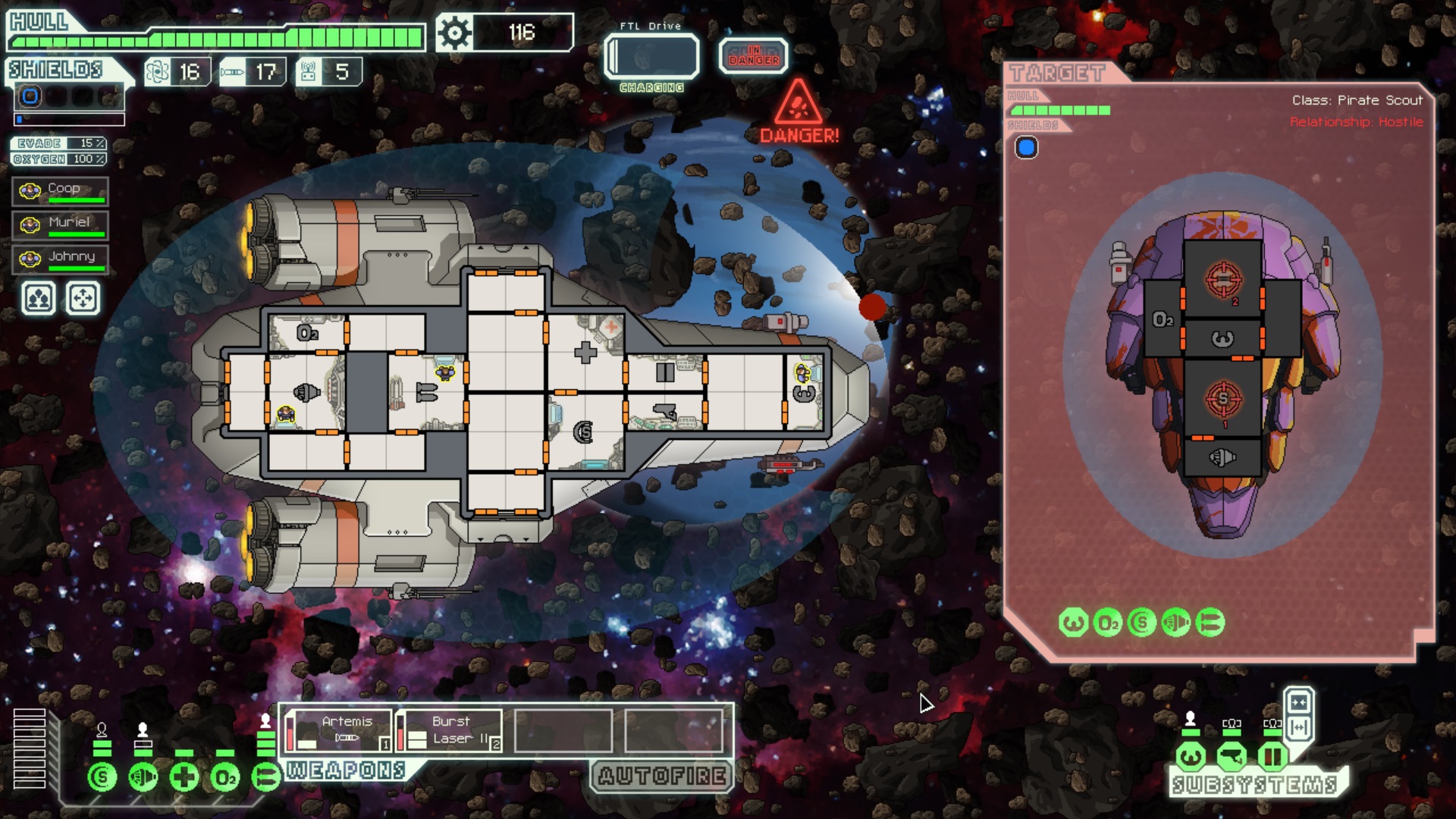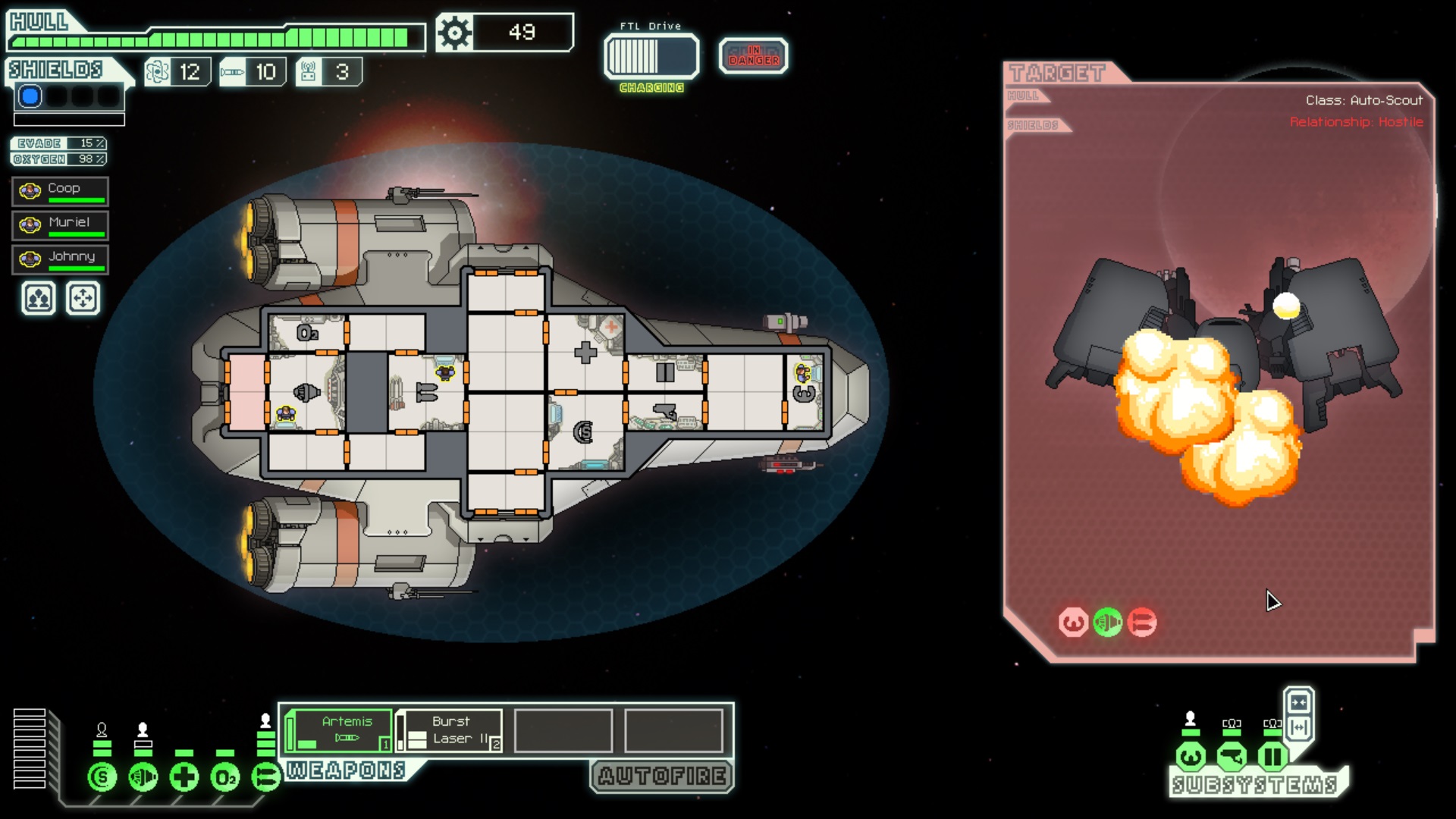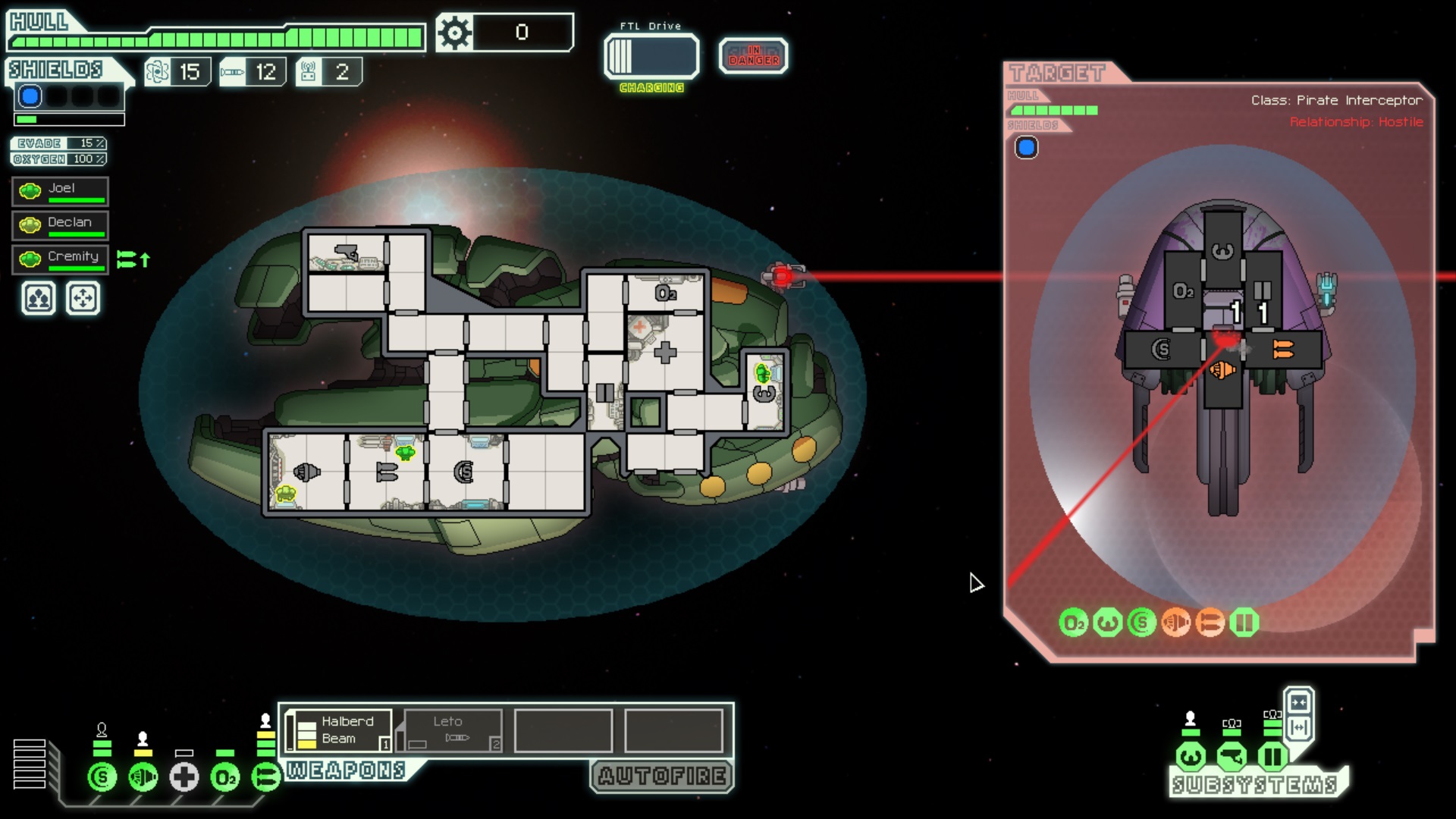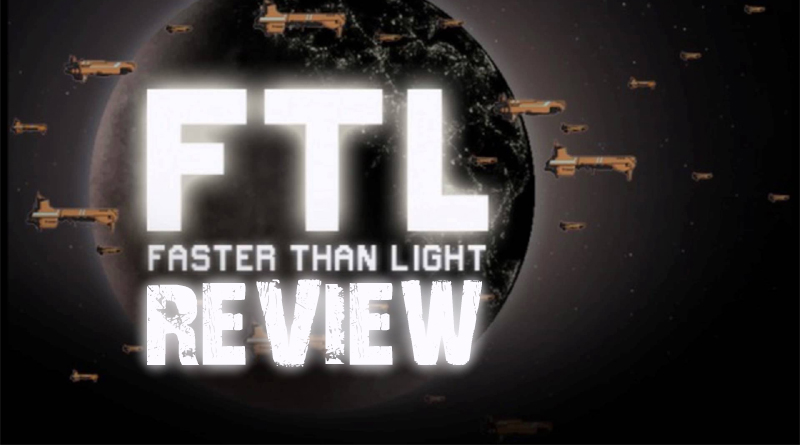With the large expanse of unexplored space, mankind has often wondered what it would be like to explore it. Or, at the very least, make stories and games about exploring it. FTL: Faster Than Light is one such game, putting you in charge of a ship on an important and dangerous roguelike mission through outer space. This review focuses on both the regular game’s content and the free Advanced Edition’s additions.
Storyline
Faster Than Light’s story is rather straightforward, you have information vital to bringing down a rebellion. It’s in your best interest to stay one step ahead of the approaching onslaught of rebel ships, and hope you survive to deliver. Who’s good and who’s evil is never really discussed, you could be the bad guy for all you know.
Gameplay

Through faster than light travel, you have the ability to jump from point to other nearby points on each sector; each point on the map is random in what you will encounter there. It could be an enemy, it could be some asteroid miners that need help, or any other number of interesting events that you may run into. Some places are clearly marked “Store” once you get near them, and you can purchase goods to improve your ship. Also, no matter where you are, you can upgrade your ship’s core power, a resource that is passed around to the different systems you have. The more guns or upgrades you have, the more core power you’ll need to run it at maximum efficiency.
Throughout your adventures in space, going from differently controlled sector to sector, you will encounter at most, eight different alien races, all varying in skills and inherent abilities. You will fight them, you may shop from them, you will hire them, or you’ll rescue them. In the latter two, you add to your overall crew, the members you control to keep the ship in working order and fend off intruders.
From shops, there are a plethora of different things you can buy, from ammunition for your weapons, special perks for your ship, crew members, different weapons, and drones which can protect your ship or attack the enemy. The currency, scrap, is obtained by beating enemies, either to submission or til their ship explodes, or by finding them via plenty of different events throughout the game.
Faster Than Light touts being a strategy game, yet unlike chess or, say, Warcraft, nearly all elements are random. The events, enemies, and shop items are always different. Every start is similar, but the tools you will be provided for surviving like weapons and drones are entirely random. Often times, you will run into situations that you were wholly unable to prepare for. For instance, you may not be supplied with a helpful item to purchase at a store before later FTL jumping into an enemy encounter that you won’t survive. While some strategizing can influence whether or not you live, more often than not the reason you lose will be due to not being equipped with just the right weapon or defense that the random nature of the game didn’t give you the opportunity to get. Failure by bad luck isn’t fun.
Along with this, Faster Than Light features permadeath like most roguelikes, and what’s worse than losing because of bad luck? Losing all your progress because a random encounter dictated you get to die. There are Easy, Normal, and Hard modes, but by a serious misjudgement by the developers you’ll find that “Easy” is a horrifically massive understatement of the difficulty you’ll encounter.
Graphics

All elements in this game are clearly recognizable at a glance, backgrounds and locations are always clear, every species discernable from all the other elements working at once. Every UI element is clear and concise in what it does, and even when you don’t understand what it does, a handy tooltip with easy to read text is available when hovering over anything.
Explosions, fire, and environmental effects are rather good, but seem like they could have been done better.
Sound
Sound is easily the best element of this game. Every sound effect is nearly perfect, providing clear and concise feedback to the player whether there’s a fire started in their ship or if a missile has made contact with an enemy ship With an excellent soundtrack by a very talented Ben Prunty, every moment has just the right weight and emphasis to it. The music is fantastic, changing slightly for every enemy, sector, and situation.
Replayability

Faster Than Light’s replayability comes not from its random events that would mean each playthrough would be different, since death is inevitable in just about every playthrough if the game is feeling particularly spiteful-no, it comes from the unlock system. By completing different challenges which are relatively more reasonable than the random mechanics of the main game, you can gain access to different ships and ship layouts. I haven’t personally unlocked too many, so I don’t actually know if any of them are more likely to survive than others.
Verdict
Faster Than Light is a game that looks great, sounds great, and at times feels great, but ultimately falls flat under a poorly managed randomized event system which unfortunately is at the core of it. Due to the random and permadeath nature in tandem, it becomes harder to learn from mistakes because you have no opportunity to try out different solutions to a situation, making this less of a strategy game, and more a deadly game of trial and error.
- Storyline – 55%
- Gameplay – 55%
- Graphics – 75%
- Sound – 85%
- Replayability – 60%
Final Verdict – 66%
Faster Than Light is a game that had potential to be something better, but inadvertently provides a bleak futuristic environment with low survival possibilities. Even given the low price, we’d recommend that if you want to give this game a try, get it on sale and keep your expectations low. FTL: Faster Than Light is available on PC, iOS, Linux, and Mac.




